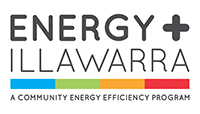HOT WATER
Heating water is the second largest segment of household energy use in Australia, accounting for between 21-50% of your energy bill.
One of the best ways to reduce energy bills is to reduce hot water consumption. More than half of hot water use in the home happens in the bathroom, so installing water efficient shower-heads and taps is a great energy saver. Washing clothes and rinsing dishes in cold water will also help.
In today’s market there are a number of energy efficient water heating technologies available. The right one for you will depend on a number of factors including your homes location, number of occupants and personal preference. To help you choose ‘Choice’ have put together a great Hot Water System Buying Guide which you can find here.
A solar hot water system could provide 50-90% of your hot water needs by taking advantage of Australia’s supply of sunshine to heat water.
Solar hot water systems use solar collectors, usually located on the roof of your home (best positioned facing north), which absorb energy from the sun to heat water for your home. The heated water is then stored in an insulated tank for when you need it.
On cloudy days, or when hot water usage is higher than usual, your hot water system may need a boost. The booster will come on when the temperature of the water in the storage tank falls below the thermostat setting, and turn off automatically when the water reaches the required temperature.
Boosters ensure that you always have access to hot water and can either be electric or gas.
Heat pump hot water systems are a newer, more efficient, type of storage water heater that extract heat from the air to heat water.
They work on the same principle as a reverse cycle air conditioner, but instead of pumping heat from outdoors to indoor air, they pump heat from outdoor air into the water.
They run on electricity but are roughly three times more efficient than conventional electric water heaters. Efficiency decreases significantly in cooler climates.
Gas hot water systems are more energy efficient and cheaper to run than electric storage systems. All gas hot water systems have an energy star rating to help compare models. Gas-instantaneous systems are generally more efficient than gas storage systems as they only heat the water that is required at the time. A gas-instantaneous boosted solar system is one of the most efficient hot water systems available.
COST
Energy efficient systems often cost more upfront, but the potential energy savings mean that over time you could save significant money. You may also be eligible for Government Incentives to help cover the costs.
Solar and heat pump hot water systems cost more to buy and install than other types of hot water systems. However the energy savings will recover your costs well within the life of the system, and they add value to your home.
Most people wait until their existing hot water system fails (typically at around 10 years old) before thinking about replacing it, at which point the upfront cost of an energy efficient upgrade seems too high in the urgency of the moment.
If your hot water system is more than 5 to 10 years old, consider getting quotes and advice on energy efficient replacements so you can start saving and be ready to make the best long term decision if your system fails.
Households across Australia that install an eligible hot water system may be able to receive a benefit under the Small-scale Renewable Energy Scheme (SRES) to help with the purchase cost.
To check your eligibility and for more information go to: yourenergysavings.gov.au
WATER TEMPERATURE
Hot water safety regulations specify that hot water outlets in bathrooms and kitchens must be no more than 50°C. Tempering valves are now installed on all systems to mix some cold water in with the hot water from the tank to reduce the temperature at the taps. Setting your tempering valve at around 40°C will save significant energy.
Health regulations stipulate that hot water tanks must hold water above 50-60°C.
EXPOSED PIPES
Exposed copper hot water pipes can lose heat energy if they are not insulated. Insulate your pipes, valves and fittings with foam pipe insulating tube and wrapping (13mm thick for external tanks and 9mm thick for internal tanks). Insulate at least 2 metres or to the nearest wall penetration. Cheap insulation can be purchased at local hardware stores.
